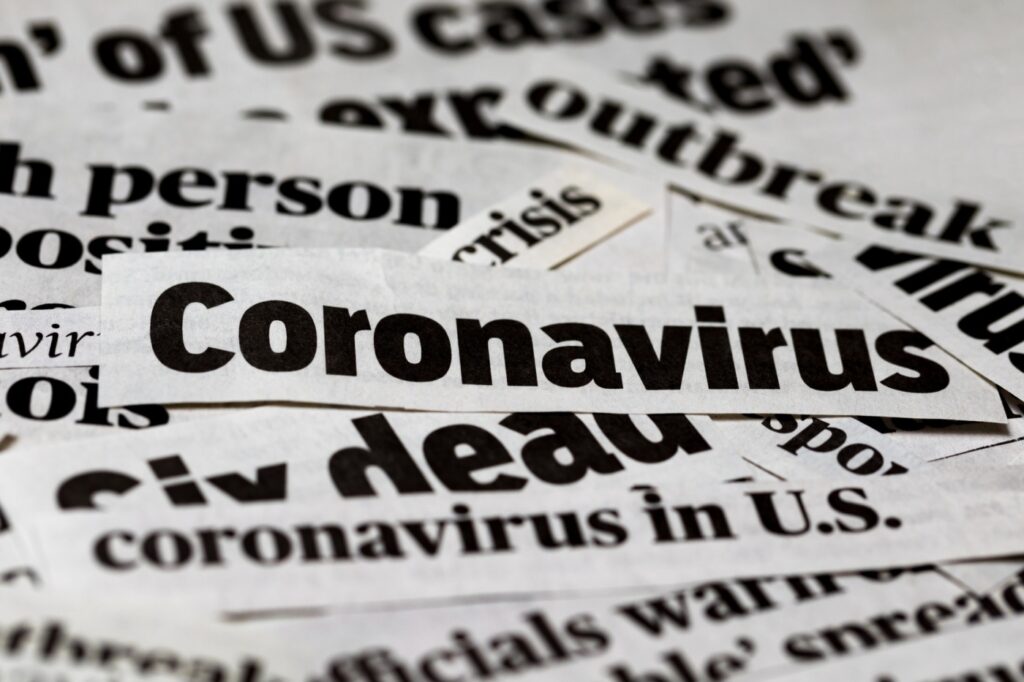
I was doom-watching cable news last week when a heart-warming story came on about an NFL player who traveled halfway across the country just to ease the suffering of a grieving family.
Holly Soape, who had developed a slight Instagram friendship with her family’s favorite player, Anthony Harris of the Philadelphia Eagles, by periodically exchanging support and prayers, took a leap of faith in asking him to take her daughter to their Texas church’s father-daughter dance following the death of the girl’s father.
And the unexpected happened.
Harris flew to Texas, was very generous with his time and money and gave this heartbroken family something to be happy about.
Now, when I was watching this on Morning Joe, it was 6 a.m. on a weekday and I was making coffee while still very sleepy. The segment was preceded by the usual sky-is-falling stuff like congressional dysfunction and a possible invasion of Ukraine by the Russian military – you know, the stuff with which I ruin each morning in my quest to stay informed.
Anyway, I started tearing up. It was such a wonderful surprise and a nice break from the doom-and-gloom. I loved it.
I bring this up because A) it’s a touching story and I recommend everyone go and read about it, and B) because it made me wonder why there is so much negative news.
“If it bleeds, it leads,” the old newsroom saying goes, which makes it seem like news outlets are run by ghouls.
But here’s the thing: media outlets wouldn’t report negative news so often if it wasn’t what consumers wanted.
We’re the problem and science proves it. In 2019, the Proceedings of the National Academy of Sciences found that a majority of people, spanning 17 different countries, proved to be biased towards negative news.
The study mentioned that this could at least be partly because negative news conveys useful information – warning that there’s a killer on the loose is more useful to consumers than a story about a fireman who saves a cat from a tree – but apparently, the problem is worse in America.
Last year, researchers at Dartmouth College published an analysis of COVID news coverage from around the world, finding that 90 percent of articles from major American outlets were negative compared to just around half for global outlets.
Some examples included overlooking a nationwide drop in COVID cases last summer to focus on hotspots in individual states and the cumulative death toll, or minimizing the early successes of the vaccines by focusing on new variants or vaccine side effects.
But we don’t need the news media to fuel our negativity. Who doesn’t love gossip? Or hate-reading social media posts?
Pew Research Center found in late 2020 that 64 percent of Americans thought social media had a negative effect on “the way things are going in the U.S. today.”
And yet, social media is an integral part of American society, and increasingly so.
We agree it’s toxic and yet we just can’t quit it. Sure, social media is useful at times, giving us access to celebrities, keeps us informed about important events, and helps us stay in touch with friends and family members we don’t get to see often.
But we also love the public shamings, the Twitter fights, our nutty relative’s Facebook rants and scrolling Instagram for a dose of feeling left out.
Related Articles
Newest California trend: Recalling officeholders
Mexico’s AMLO and the Yanqui pols, too
Orange County deserves better than Todd Spitzer
The COVID emergency is over, it’s time for Newsom to act like it
Amir Locke’s death demonstrates the recklessness of ‘dynamic entry’ tactics
Science says humans have a negativity bias built into our brains. For that we can thank electrical impulses and cortisol levels in our brains and our ancestors for embedding into the evolutionary process negative thinking as a survival mechanism to stay alert and prepare for disaster. Meanwhile, religion would say it’s part of the human condition, which is why we need God.
So everyone agrees we’re born this way – physically and spiritually prone to negativity. However, we still have a choice.
We don’t need to think negatively to prepare for outcomes that might never happen. We could turn to God, and if that’s not our thing, we could try thinking positively instead.
After all, there’s no chance Anthony Harris would have ended up at that father-daughter dance if Holly Soape had simply thought: “There’s no way he’ll do this and there’s no point in trying.”
Follow Matt Fleming on Twitter @FlemingWords.
